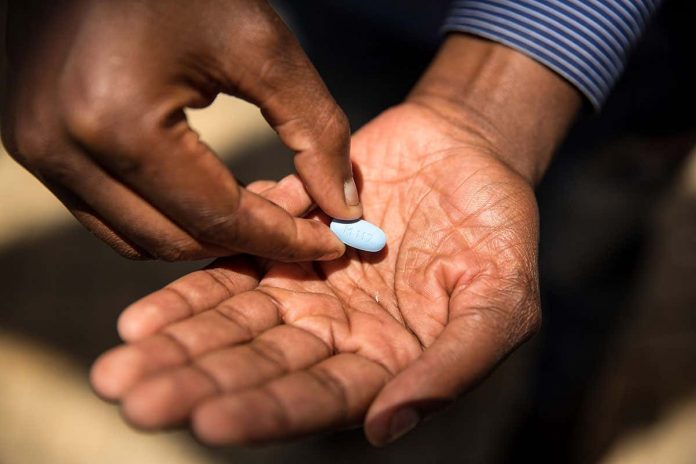
Daniel Born/The Times/Gallo Images/Getty Images
Nearly 1 million people are now taking pre-exposure prophylaxis (PrEP), a pill that can slash the risk of HIV infections. While early use of the drug was mostly limited to Western nations, the number of users in sub-Saharan Africa (SSA) has now drastically increased, accounting for more than half of the world’s PrEP users.
Kate Segal at AVAC, a New York-based non-profit focused on global HIV prevention, presented the latest data on PrEP use at the virtual HIV Research for Prevention Conference on 26 January. She said there had been a major expansion of PrEP users in 2020, with a rise of more than 300,000 from the previous year. In SSA, expanded access saw the number of new users jump from 4154 in 2016 to more than 517,000 in 2020, representing 56 per cent of the global total.
Out of the 10 countries with the highest number of PrEP users, seven are in SSA. South Africa has surpassed 100,000 users, while Kenya has about 83,000 as of December 2020, followed closely by Zambia and Uganda.
Advertisement
Segal attributed the trend to investments from the US President’s Emergency Plan For AIDS Relief, a major funder of HIV programmes across SSA, along with commitments by many governments in the region to offer wide access to PrEP.
“In South Africa and Kenya, credit policies [to fund access] and guidelines were adopted, ambitious targets were set and sufficient resources were allocated by national governments to meet them,” Segal told New Scientist.
She says that SSA countries have ensured the drugs are available to the general population, as well as for groups at high risk of HIV, such as men who have sex with men, sex workers and transgender people. This contrasts with the approach in countries such as the UK, which has long resisted providing general access to PrEP.
Segal says there are still opportunities to expand access in SSA, such as making PrEP available at local pharmacies and other outlets, and informing the public about the drug.
“Many of the general population still don’t know that PrEP exists or what it is or how to access it. So we really need to normalise it and increase demand,” she says.
John Nkengasong at the Africa Centres for Disease Control and Prevention says the ongoing coronavirus pandemic may hamper these efforts.
“Covid-19 has impacted all our health programmes, not just HIV. I suspect that there’ll be a lot of effect on PrEP initiations in Africa this year,” he says. “We know and we anticipate that there will be harm to our HIV and other programmes.”
But in Nigeria, where PrEP users grew from 76 in 2016 to nearly 32,000 in 2020, there is optimism that the decision to centrally coordinate Nigeria’s HIV programmes will further expand access to PrEP. Ifeanyi Nsofor, CEO of Nigerian public health consultancy EpiAfric, says that with HIV prevalence significantly dropping in Africa, efforts are now turning to prevention measures such as PrEP, especially among young people.
“Focus should be on prevention and scaling up youth-friendly health facilities and deploying technology to provide information on PrEP and other issues to adolescents via mobile phones and social media,” he says.
Sign up to our free Health Check newsletter for a round-up of all the health and fitness news you need to know, every Saturday
More on these topics:











